ITS innovation, i-nose c-19, is Ready to be Tested at RSI Surabaya
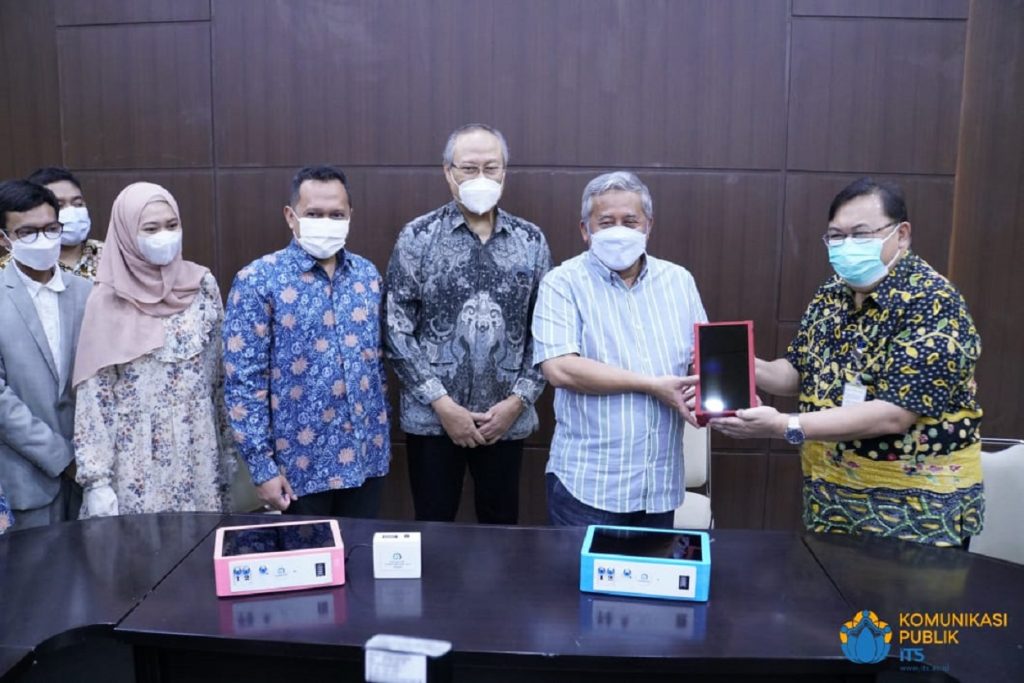
Prof. Drs Ec Ir Riyanarto Sarno MSc PhD and team, Director of ITS DRPM Agus Muhamad Hatta S.T. M.Sc Ph.D. and Prof. Dr. Ir. Muhammad Nuh DEA hands over the i-nose c-19 tool to the President Director of RSI Jemursari dr Bangun Trapsila Purwaka SpOG-K (right)
ITS Campus, ITS News – The journey of the advanced innovation tool for Covid-19 screening, the i-nose c-19, continues. The device developed by the Institut Teknologi Sepuluh Nopember (ITS) Prof. Drs Ec Ir Riyanarto Sarno MSc Ph.D., and the team was in the stage of adding samples for the profiling test process. To add pieces, Prof. Drs. Ec. Ir. Riyanarto Sarno M.Sc. Ph.D. and the team handed over four i-nose c-19 devices at the Jemursari Islamic Hospital (RSI), Surabaya, Monday (22/2).
Apart from being with the team, the professor, who is familiarly called Ryan, was also accompanied by the ITS Trustee Council (MWA) Prof. Dr. Ir. Muhammad Nuh DEA and ITS Director of Research and Community Service (DRPM) Agus Muhamad Hatta ST MSc Ph.D. Not to forget, there was also the President Director of Jemursari Hospital, Dr. Bangun Trapsila Purwaka SpOG-K. The inauguration of the submission of the profiling test and tools was also aimed at Ahmad Yani Hospital, Surabaya.
In his speech, Prof. Dr. Ir. Muhammad Nuh DEA revealed that this is part of the i-nose c-19 journey. After being demonstrated at the Ministry of Research and Technology (Kemenristek), it is currently moving to the next stage, namely taking samples and conducting tests in several hospitals.
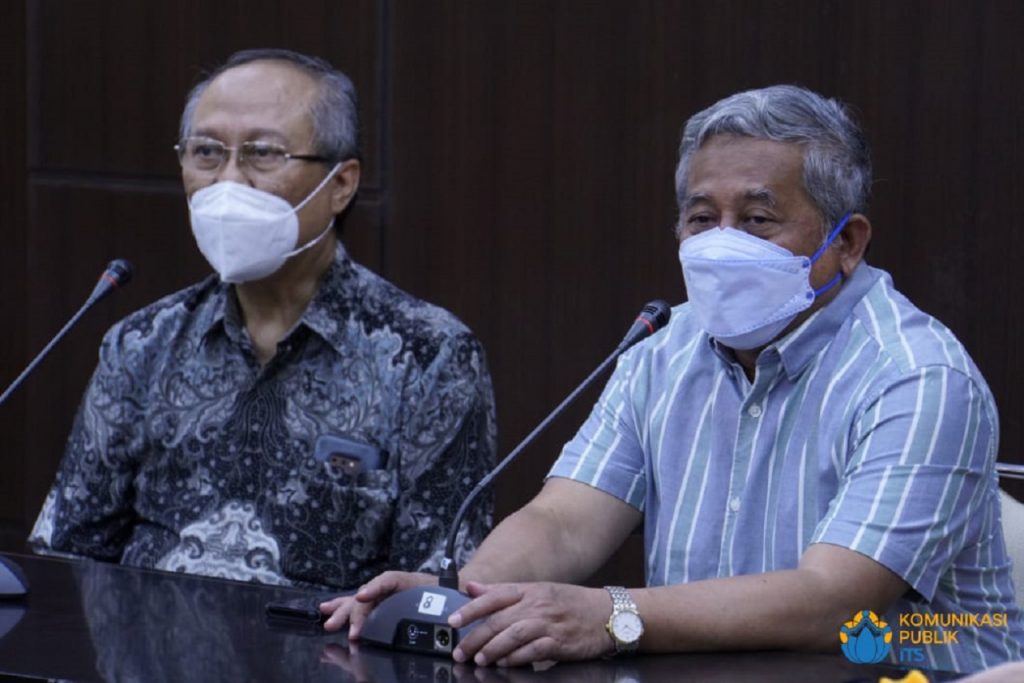
Prof. Drs Ec Ir Riyanarto Sarno MSc Ph.D. (left) and Prof. Dr. Ir. Muhammad Nuh DEA , when delivering a speech at the i-nose c-19 handover ceremony.
Apart from Jemursari Hospital and Ahmad Yani Hospital, the i-nose c-19 team collaborated with Dr. Soetomo Hospital and National Hospital. “Innovations can have meaning when they can be used in public. Therefore this is the time for i-nose to be tested in public,” said the former Minister of Education and Culture for the 2009-2014 period.
As Principal Inventor, Ryan also expressed his concern during the pandemic, which demanded to immediately present innovations as a form of an effort to survive in this situation. However, he added that turning on design is not easy. Without further research, it can be left behind with others. “The same is the case with the Covid-19 screening tool, which is getting more and more types and methods from rapid antigen to PCR,” he explained.
However, the ITS Informatics Engineering professor emphasized that the innovation of the Covid-19 screening tool through the smell of underarm sweat was not a substitute for the PCR swab test. But only a screening tool or early detection of Covid-19 before someone does a PCR swab and as an alternative to speed up the screening process. “The way the i-nose c-19 works is different from the rapid test based on antibody or rapid antigen,” said Ryan.
Not only that, he continued that the current effectiveness of the i-nose c-19 has reached a minimum of 91 percent. “It is hoped that with the increasing number of samples tested on this tool, the more it will be able to help its accuracy,” he said.
Since the i-nose c-19 detects odors from Volatile Organic Compound (VOC) contained in underarm sweat, sampling is done by inhaling the smell of work through a small tube. Then channeled to the sensor array (sensor array) on the i-nose c-19. After that, the smelly gas is converted into an electrical signal and processed using artificial intelligence.
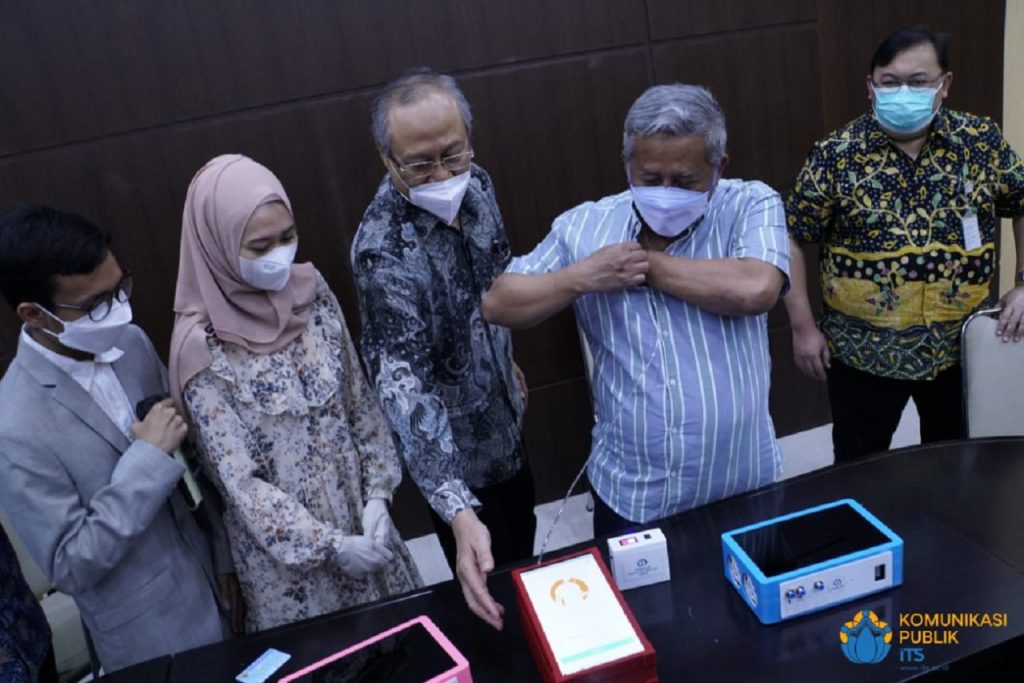
Prof. Dr. Ir Muhammad Nuh DEA , while trying the i-nose c-19 screening tool
Therefore, it takes many trials with various kinds of people with certain conditions, such as people who have tuberculosis but are harmful to Covid. These people are positive for Covid but have no symptoms and others. In this case, it will increase the accuracy and effectiveness of the tool.
The handover of the i-nose c-19 grant received a warm welcome from the RSI leadership. President Director of RSI Jemursari Dr. Bangun Trapsila Purwaka SpOG-K realizes that Covid-19 has affected the whole world. Likewise, the world as a whole is competing to promote innovation to detect this virus. “With the existing PCR swab test, it is easy for the public to find out,” he said.
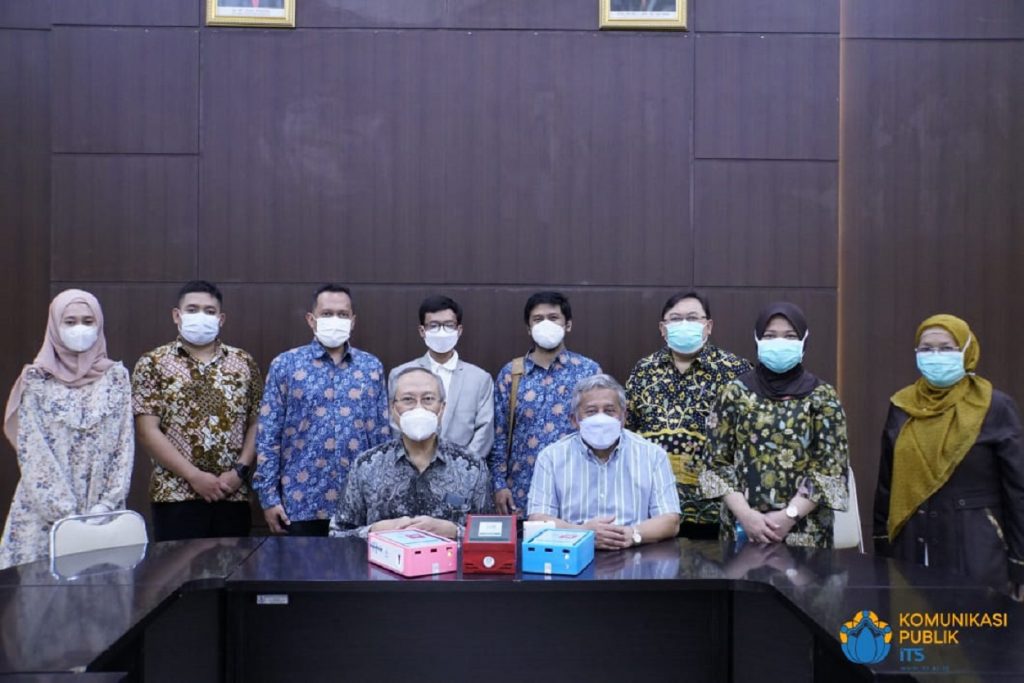
Group photo after the ceremonial handover of i-nose c-19 at RSI Jemursari Surabaya
However, he said, not everyone can pay for this expensive test. It can be concluded that the diagnosis by searching is still a problem. “With the presence of the i-nose c-19, it is amazing to answer the need. It also fulfills the screening principles so that it can be used for the masses,” he said.
Later, the four i-nose c-19 devices will be placed in two inpatient and outpatient rooms. Because this is to support the research of the i-nose c-19, according to Bangun, for later application, people who are going to be tested must have been swabbed with PCR first. This applies to patients from outside as well as from the RSI itself. “RSI is lucky to be included in this research. In the future, it is hoped that it can be used as a tool because it is cheap and fast,” he said happily.
Finally, the Director of ITS DRPM Agus Muhamad Hatta ST MSc Ph.D., or familiarly called Hatta, also gave his gratitude to the RSI for being a suitable catalyst for developing the i-nose c-19. “It is hoped that during this testing process, it can run well, and later it can be as desired,” said Hatta hopefully. (ITS Public Relations)
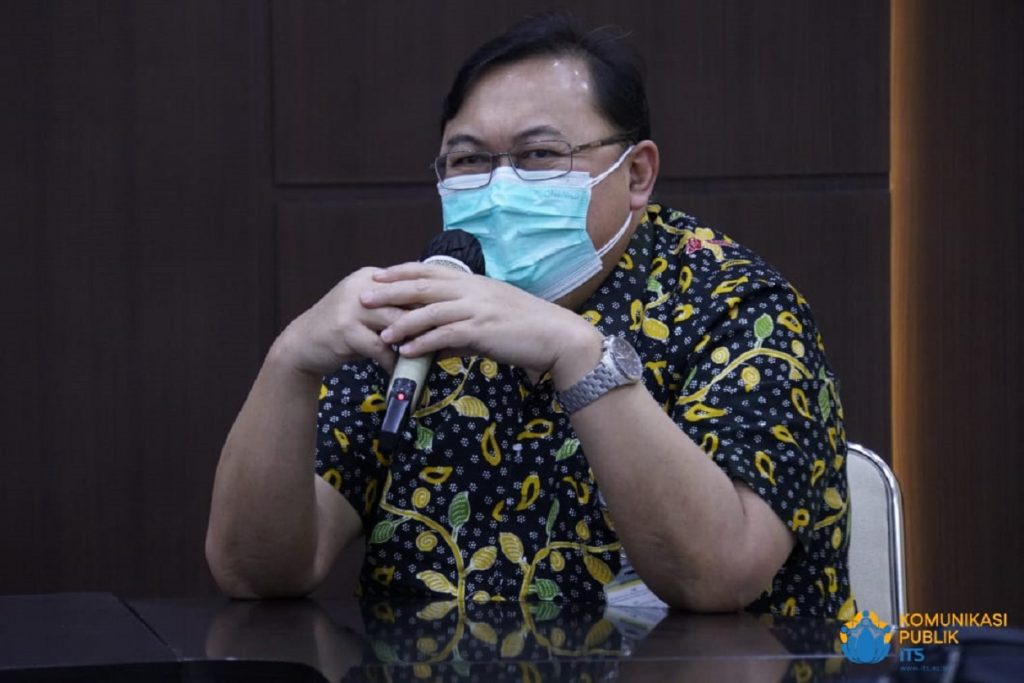
President Director of RSI Jemursari Dr. Bangun Trapsila Purwaka SpOG-K when giving a speech
Reporter : Fatima Az Zahra
Related News
-
ITS Wins 2024 Project Implementation Award for Commitment to Gender Implementation
ITS Campus, ITS News —Not only technology-oriented, Institut Teknologi Sepuluh Nopember (ITS) also show its commitment to support gender
February 22, 2021 20:02 -
ITS Professor Researched the Role of Human Integration in Sustainable Architecture
ITS Campus, ITS News –The developing era has an impact on many aspects of life, including in the field
February 22, 2021 20:02 -
ITS Sends Off Group for Joint Homecoming to 64 Destination Areas
ITS Campus, ITS News — Approaching Eid al-Fitr, the Sepuluh Nopember Institute of Technology (ITS) is once again facilitating academics who want
February 22, 2021 20:02 -
ITS Expert: IHSG Decline Has Significant Impact on Indonesian Economy
ITS Campus, ITS News — The decline in the Composite Stock Price Index (IHSG) by five percent on March 18,
February 22, 2021 20:02
